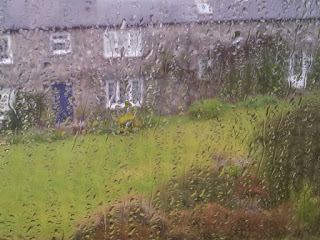Part 6 of a series - 'The valley of dry bones'
< The word of Yahweh |
Index |
Sinew, muscle and skin >
Ezekiel begins speaking to the bones and the effect is immediate. There's a clear pattern of actions in a logical sequence; the preliminary need is met as Ezekiel speaks.
'So I prophesied as I'd been told. As I spoke there was a rattling noise and the bones moved together and connected.' (
Ezekiel 37:7)
There's a lot of important material for us in just these few words. Let's begin by noting that Ezekiel was obedient. He had been told to speak to the bones and he'd been given the words to say. And now, in obedience, he speaks them out.
Let's remind ourselves of what he was told to say. 'This is what the Lord Yahweh tells these bones: "I'll cause breath to come into you and you'll come alive. I'll attach tendons, cause flesh to appear on you and cover you over with skin. I'll put breath into you and you'll live - then you'll know that I'm Yahweh."'
Notice the repetition, a form of emphasis. First we have breath-life. Then the repetition which also provides more detail, tendons-flesh-skin-breath-life-know. The breath and life are central, the tendons, flesh and skin are necessary enablers, and know is the purpose. 'Know that I'm Yahweh' or 'Know Yahweh' if we follow Sean's suggestion (check the comments in the
previous part).
But what happens when Ezekiel pronounces these words of prophecy over the bones? None of the above! What
does happen is immediate, however, and implied. In order for Yahweh to attach tendons, first he must move the bones together. They cannot move themselves for they are dead.
So when the dry and dusty bones of church as we see it hear the Word (who
is Jesus) we can expect that those bones will move together into right relationship. We can also expect it to be a noisy process, anyone nearby will know about it. And then they will be in the right places for sinew and muscle and skin to cover them over, and spiritual life to fill them until they know him. And then he will have church as
he sees it and expects it and can use it.
Ezekiel's obedient pronouncement was prophetic over scattered, broken, captive Israel. They were about to be brought together in Jerusalem and become once more a living nation. They would rebuild the Temple so they might again know Yahweh and have him living amongst them.
But those same words are prophetic over the scattered, broken, captive people who together make up the church in our day. We too need to move together into right relationship with one another. We need the Creator King to bind us together with sinew and muscle and skin.
Writing to the Ephesians, Paul puts it like this: '...we will grow to become in every respect the mature body of him who is the head, that is, Christ. From him the whole body, joined and held together by every supporting ligament, grows and builds itself up in love, as each part does its work.' (
Ephesians 4:15-16)
We need to be filled with the abundant life of the Spirit of Christ until we truly know him. Then we will be the new Temple built of living stones, his body here on Earth, a mighty army.
Let the import of that glorious and astonishing destiny fill your heart with hope and expectation. It will happen! These words have been spoken over us by someone greater than Ezekiel, by Christ himself. He has said it. He will do it!
I must now point out the disjointed and broken nature of church as we see it today. Everywhere we see denominations, streams, grouping of all kinds. We see house churches and mega churches and in between churches. These are
all dry bones. But the body of Christ as he intends it (and will have it) is one body, a living and breathing body.
All of the parts are involved. Here's the mystery - the denominational and other dry bones will be hidden from view, bound together in right relationship and covered over with flesh and skin.
I suggest you read
Ephesians 4:1-16 in full at this point. What will Paul's words say to you about all this?
< The word of Yahweh |
Index |
Sinew, muscle and skin >
 It's so easy to live my life with 'me' at the centre. It's called being self-centred and it's not a good thing, not a good thing at all. Yahshua calls us to be other-centred, not self-centred. In fact, I need to live a life focussed first on Father, and then on all those around me. That includes my enemies. What a challenge!
It's so easy to live my life with 'me' at the centre. It's called being self-centred and it's not a good thing, not a good thing at all. Yahshua calls us to be other-centred, not self-centred. In fact, I need to live a life focussed first on Father, and then on all those around me. That includes my enemies. What a challenge!




